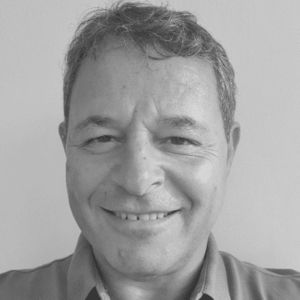Registration is now closed.
Seminar 7: “Looking for the mentor – Young researchers are advised to look for strong mentors in their own research field and to learn from them”
To make an important contribution to the one world-one future-one health concept, the passing on of our expertise and our achievements to the next generation is a prerequisite. Supervisors often have considerable influence over the lives of beginning researchers. The main role of a supervisor is to help a young researcher move along in productive and successful career development. Many successful researchers can point to mentors who helped them succeed. A supervisor should be a mentor and good adviser and he or she takes a personal as well as a professional interest in the development of a researcher. When a graduate student or postdoctoral fellow is deciding whether to join the research activities of the supervisor and mentor gathering information about the research field and the research group and its leaders is valuable in helping that individual arrive at a good decision. This presentation aims to address useful questions, how young researchers, supervisors and institutions can act together in a professional way to promote good science and to be constructive for our society. At the same time, institutions and universities must promote good supervisors and mentors by rewarding individuals, offering them the best working and research conditions. Though science today is so fast-paced and complex, experienced mentors should take the time or opportunity to explain why a decision is made or an action is taken. Young researchers should get the best advice from their supervisors. We all know that investing in the future is the best way to make the world a better place.
Presenter

Prof. Panagiotis Karanis
Director of Anatomy Centre, Medical School
A resourceful and dedicated professor with an outstanding academic background, excellent publication record and significant teaching experiences in the fields of Human Anatomy and Infectious Diseases. Established worldwide collaborating in a productive and successful team and thrives in challenging environments. PhD and habilitation at the University of Bonn in Germany, Professorships at the Medical Faculties of Bonn and Cologne Universities in Germany, at the National Research Center of the Obihiro University in Hokkaido in Japan and of Qinghai University in Xining, China. In China invited by the Chinese Government, and successfully completed the 3-year ‘1000 Talent Program’, for which he was invited as ‘Foreign Expert’ by the Chinese government. Developed and established the Center for Biomedicine and Infectious Diseases’ in the Tibetan Plateau Area in the Qinghai Province, which has been promoted to the ‘State Key Laboratory of Qinghai Province’ in China. Since September 2019, Professor of Anatomy and Director of the Anatomy Institute and Coordinator of Unit of Anatomy and Morphology at the University of Nicosia Medical School.
All years have been characterized by his continuous progress and a long list of accomplishments in research, teaching, and different academic positions with persistent motivation for further challenging roles with enthusiasm and professionalism. An international advisor at organizations and universities worldwide. Contributing to combat emerging and neglected diseases, which continue to challenge our everyday life. Working under the approaches of the ‘One Health Concept’ and taking in consideration demographic movements, geographic, climatic, environmental, agricultural, and globalization characteristics.
Prof Karanis is included in the annual list of 100,000 top scientists worldwide and, correspondingly, in the top 2% of scientists in their field, according to a team of researchers at Stanford University in the USA.
This seminar is part of the Research Skills Development Programme (RSDP) series. For more information visit https://www.unic.ac.cy/research-skills-development-programme-2021-22/




